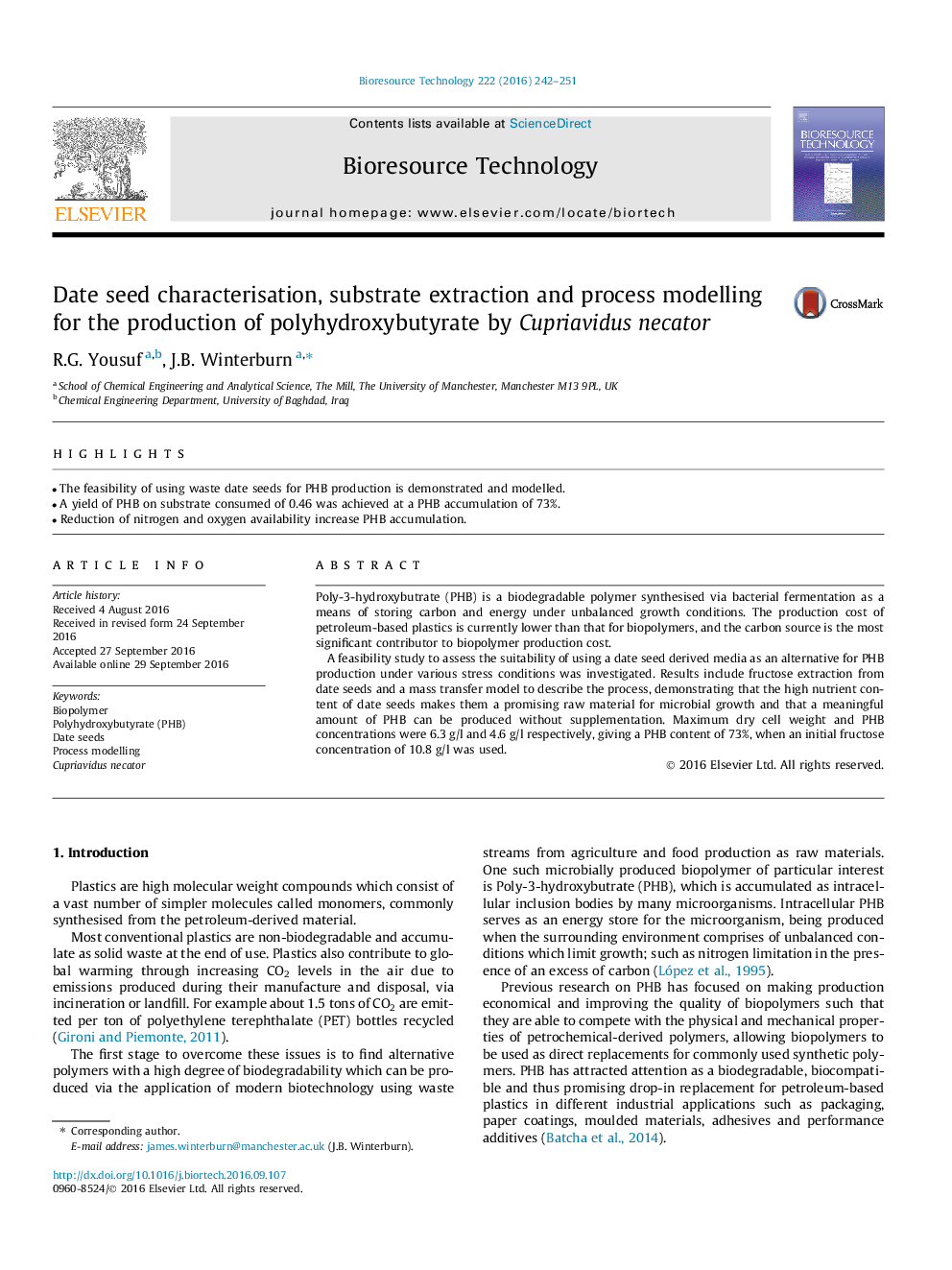| Article ID | Journal | Published Year | Pages | File Type |
|---|---|---|---|---|
| 4998013 | Bioresource Technology | 2016 | 10 Pages |
â¢The feasibility of using waste date seeds for PHB production is demonstrated and modelled.â¢A yield of PHB on substrate consumed of 0.46 was achieved at a PHB accumulation of 73%.â¢Reduction of nitrogen and oxygen availability increase PHB accumulation.
Poly-3-hydroxybutrate (PHB) is a biodegradable polymer synthesised via bacterial fermentation as a means of storing carbon and energy under unbalanced growth conditions. The production cost of petroleum-based plastics is currently lower than that for biopolymers, and the carbon source is the most significant contributor to biopolymer production cost.A feasibility study to assess the suitability of using a date seed derived media as an alternative for PHB production under various stress conditions was investigated. Results include fructose extraction from date seeds and a mass transfer model to describe the process, demonstrating that the high nutrient content of date seeds makes them a promising raw material for microbial growth and that a meaningful amount of PHB can be produced without supplementation. Maximum dry cell weight and PHB concentrations were 6.3Â g/l and 4.6Â g/l respectively, giving a PHB content of 73%, when an initial fructose concentration of 10.8Â g/l was used.
